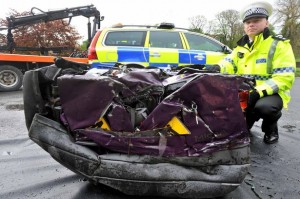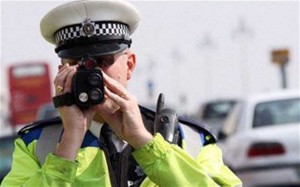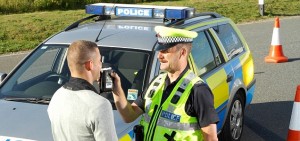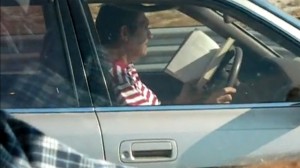Road Traffic Offences and How to Defend Them
General practice lawyers who deal with multiple areas of criminal law often aren’t fully familiar with the perfect legal arguments that can be put forward on your behalf if you have been accused of any of the road traffic offences below;
We asked leading driving law solicitor Dominic Smith of Patterson Law for his advice, tips and guidance in defending the top ten most frequently prosecuted motoring offences in the UK and this is what he said:
Failing to provide driver information
The police send S172 information requests when an offence is committed.
If you do not complete and return the form you will be liable for 6 points on your licence.
The 2 possible options for your defence are Section172(4) and S172(7)(b) Road Traffic Act 1988.
You have a valid defence if you can show the court that in order to establish the driver at the time of the offence, you used reasonable diligence, or that you didn’t ever receive the S 172 information request.
Having No Insurance
Your reasons for driving without valid car insurance are not relevant when you are stopped. With no motor insurance cover in place, you are assumed to be at fault and as such as considered guilty of the offence.
When found guilty, or if you plead guilty to driving without having valid motor insurance in place then you will get 6 – 8 penalty points.
It is quite common for insurance to be cancelled due to a missing payment, and for the driver to be unaware that they are not legally insured.
You can use a special reasons argument if you can show that you honestly believed that you had insurance cover in place.
Speeding
As well as a possible driving ban, the penalty for speeding is 3 – 6 points on your licence, a fine and incurred court costs.
Following on from recent case law, if you are going to be successful defending your alleged speeding offence, you will need to have professional evidence to support your defence.
Drink Drive Road Traffic Offences
35mg is the maximum permitted alcohol breath reading for drink driving in the UK.
A twelve month licence ban is the minimum penalty for drink driving.
The three main ways to defend a drink drive allegation are either, that you had the alcohol after driving, you were not driving, or that you were not in a public place.
It’s also possible to avoid a disqualification if you can demonstrate you unknowingly consumed alcohol that took you above the limit, you drove a very short distance or you had to drive for a real life emergency situation.
Drunk in Charge Related Motoring Offences
In court, it is necessary for the prosecution to show that you were over the drink driving legal limit, and that you were also in charge of the car too.
A frequently used defence for drunk in charge of a vehicle is to demonstrate to the court that you didn’t intend to drive and were not planning to do so until you were below the drinking and driving limit again.
The Court will impose either ten points or a discretionary driving ban.
Using a Mobile Phone While Driving
To be found guilty of using a phone whilst driving, you must be holding the mobile phone and using it whilst driving.
This can be a grey area and different Magistrates Courts often have differing opinions.
It is still an offence if you are stationary at traffic lights for example.
Driving Without Due Care and Attention
To prove the motoring offence of driving without due care and attention, the prosecution are required to prove in court that your driving standard fell below the standard expected from a competent and careful driver.
Motoring offences covered include undertaking on motorways and low speed scrapes and knocks.
For this offence, the police can offer you a Driver Improvement Course instead of going to court.
Fail to Report
If, following an accident, damage was caused to a vehicle, person or property, then, as the driver you have a duty in accordance with S 170 Road Traffic Act 1988 to stop and exchange details.
You have up to twenty four hours to report an accident at a police station if it wasn’t practicable to provide your details at the time of the incident.
If found guilty you will receive five – ten points on your driving licence or a discretionary driving ban.
You would have a possible legal defence if you were unaware that damage had been caused and you can demonstrate to the Court that it would have been reasonable that you didn’t know that you had in fact been a party to an accident.
The court considers these motoring offences to be very serious. Because of that it has the power to impose community service or even a custodial sentence if your circumstances warrant it.
Dangerous Driving Offences
In order to be guilty of dangerous driving, your quality of driving has to be shown to have fallen far below what is reasonably required, but in addition, it must also be clearly obvious to a careful and competent driver that the driving is dangerous.
It carries a mandatory minimum one year licence disqualification and a re-test before getting your driving licence back and can involve a prison term.
Driving without a Valid Licence
This motoring offence is often misunderstood by drivers.
If driving not in accordance with the conditions of your driving licence .i.e. no L plates or having never passed a test, it is an endorsable offence.
A non-endorsable offence related to no licence would be if for example the Driver and Vehicle Licencing Agency instructed you that you return your current licence back to them and suspended your entitlement.
It is wrong to believe that ‘no licence’ means that your motor insurance policy is invalid, that is not the case.
A specialist motoring law solicitor will be able to advise you on the details of this motoring offence. Magistrates Courts very often misunderstand this motoring offence and whether it should carry points or not.




